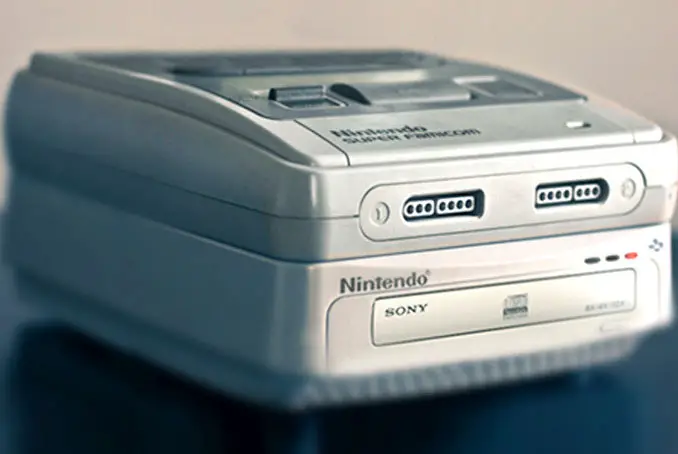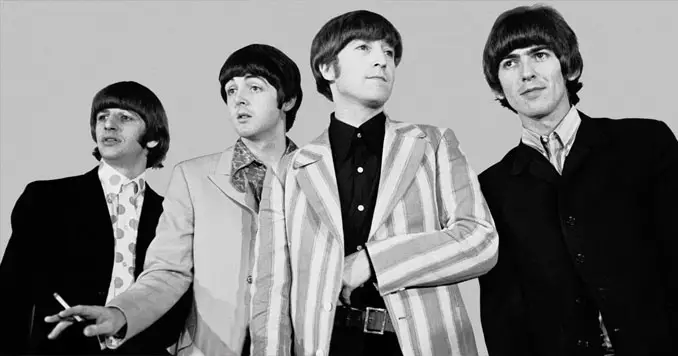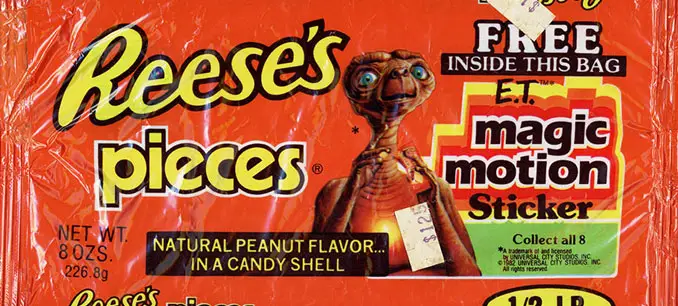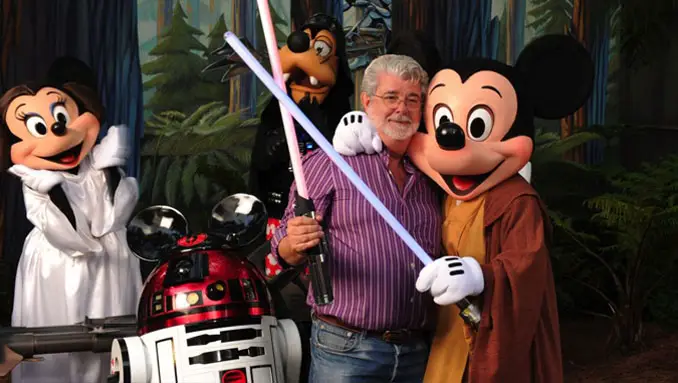5. Nintendo
In the 1980’s Nintendo was the undisputed king of the video game industry. But over the years the company had made some very poor business decisions which has seen them get toppled from their throne. These decisions include making devices that are way too underpowered and waiting too long to release games for mobile devices. However, the worst business decision they ever made happened back in 1988 when Nintendo partnered with Sony to produce a CD-ROM add-on for the Super Nintendo Entertainment System.
The deal ultimately fell apart due to licensing disagreements but Sony kept control of the SNES-CD disc format. Sony’s CD format was developed further and eventually became the PlayStation – the console that would knock Nintendo from their throne.
Nintendo then went on to make a deal with Philips, Sony’s rival, to produce a CD based console Again the deal fell apart and nothing was made. To make matter worse for Nintendo, Philips was contractually allowed to use Nintendo’s characters for games produced on the poorly received Philips CD-i console. Games made included Hotel Mario along with 3 Legend of Zelda titles: Link: The Faces of Evil, Zelda: The Wand of Gamelon, and Zelda’s Adventure.
Ultimately, Nintendo came out of the soured deal far worse for wear. They didn’t get a CD-ROM add-on for the SNES, lost rights to several of their popular gaming franchises and inadvertently created their biggest rival – the Sony PlayStation.
4. Decca Records
On 1st January, 1962, record company Decca agreed to audition a relatively unknown band from Liverpool known as The Beatles. Rejection was nothing new to the group who had already been overlooked by several labels including Columbia, Oriole and HMV.
They drove down to London the day before the audition but got lost along the way. After a 10 hour road trip they finally arrived at 10:00 pm on New Year’s Eve ‘Just in time to see the drunks jumping in the Trafalgar Square fountain.’ John Lennon said.
The following day, the band made up of John Lennon, Paul McCartney, George Harrison and Pete Best (not Ringo Starr) played 15 songs including 3 Lennon/McCartney originals. The session lasted just under an hour.
After consideration, Decca Records decided against signing the Beatles, a decision that has been described as one of the worst in music history. The executives explained their decision by saying that they believed ‘guitar music was on the way out’ and that ‘The Beatles have no future in show business.’
Today, the Beatles are widely considered to be the greatest musical act of all time with estimated sales of over 600 million records worldwide. The band still holds the record for the most number 1 albums on the British charts and has sold more singles in the UK than any other act.
3. M&M’s
In 1980 the Mars candy company was approached by Universal Studios to feature M&M’s in a new movie – E.T. the Extra-Terrestrial. It was to be directed by Steven Spielberg who had already received an Academy Award nomination for Best Director for Close Encounters of the Third Kind. Despite the movie’s potential for success, Mars passed on the deal which left the door wide open for another company to seize the opportunity.
Hershey’s candy company were offered the deal and accepted a deal to have their new product Reese’s Pieces appear in the film.
When the movie was released 2 years later, sales of Reese’s Pieces skyrocketed by 300%. Furthermore, Hershey’s had secured an advertisement for their candy in what was to become one of the most watched films of all time. E.T. went on to win 4 Academy Awards and adjusted for inflation, is still one of the top 10 highest grossing films ever made.
2. 20th Century Fox
When George Lucas approached 20th Century Fox with an idea to make a movie called The Star Wars, the executives thought the movie would most certainly be a failure. But a persistent Lucas, fresh from directing American Graffiti, a film that earned 5 Academy Award nominations, managed to secure a deal to make the film.
After earning $150 000 for directing American Graffiti, Lucas was now entitled to more than 3 times that amount to direct his new project. Despite his $500 000 director’s fee, Lucas decided to approach the executives at Fox Studios with a deal that would become one of the most lucrative of all time.
Lucas’ deal involved him keeping his original director’s salary of $150 000 in exchange for merchandising rights plus the rights to any sequels if they were to be made. The studio thought they were getting a bargain because no one believed the film would be successful let alone do well enough to warrant a sequel.
When Star Wars was released in 1977, it was an instant hit. It earned a staggering $220 million in the first 6 months at US box offices alone. Adjusted for inflation, it is still the 2nd highest grossing movie of all time. Despite the success of Star Wars it was Lucas’ deal to retain merchandising and sequel rights that saw him make his fortune.
To date, Star Wars merchandise has made over $12 billion in revenue. On top of that, the next 5 films netted an additional 3.5 billion at the box office. Add to this sales of $4 billion worth of Videos and DVD’s, $3 billion worth of computer games and $2 billion worth of books.
In 2012, Lucas sold the Star Wars franchise to Disney for a further $4 billion. Ultimately, Lucas’ deal that originally saw him take a $350 000 pay cut to direct the film, allowed him to amass a personal fortune of over $5 billion 35 years later.
1. Excite
In 1999, George Bell, the CEO of internet portal Excite met with Google’s co-founder Larry Page to discuss the possible acquisition of a new search engine technology. Google, still known as Back Rub were operating out of Stanford University when Bell met with their team that only consisted of a handful of employees.
Bell arranged to test both company’s search engines but found the results were too similar at the time to say which one was better. Excite decided not to buy Google for the meagre asking price of $750 000. Today Google is worth more than $500 billion.
It is difficult to know what may have happened if Google had been acquired by Excite. Google’s technology may have simply been shelved as Excite already had their own search engine in use. Either way, it is easy to see why this is possibly the worst business decision ever made.
That was the 10 worst business decisions ever made. Can you think of any other company gaffs that have cost billions?











